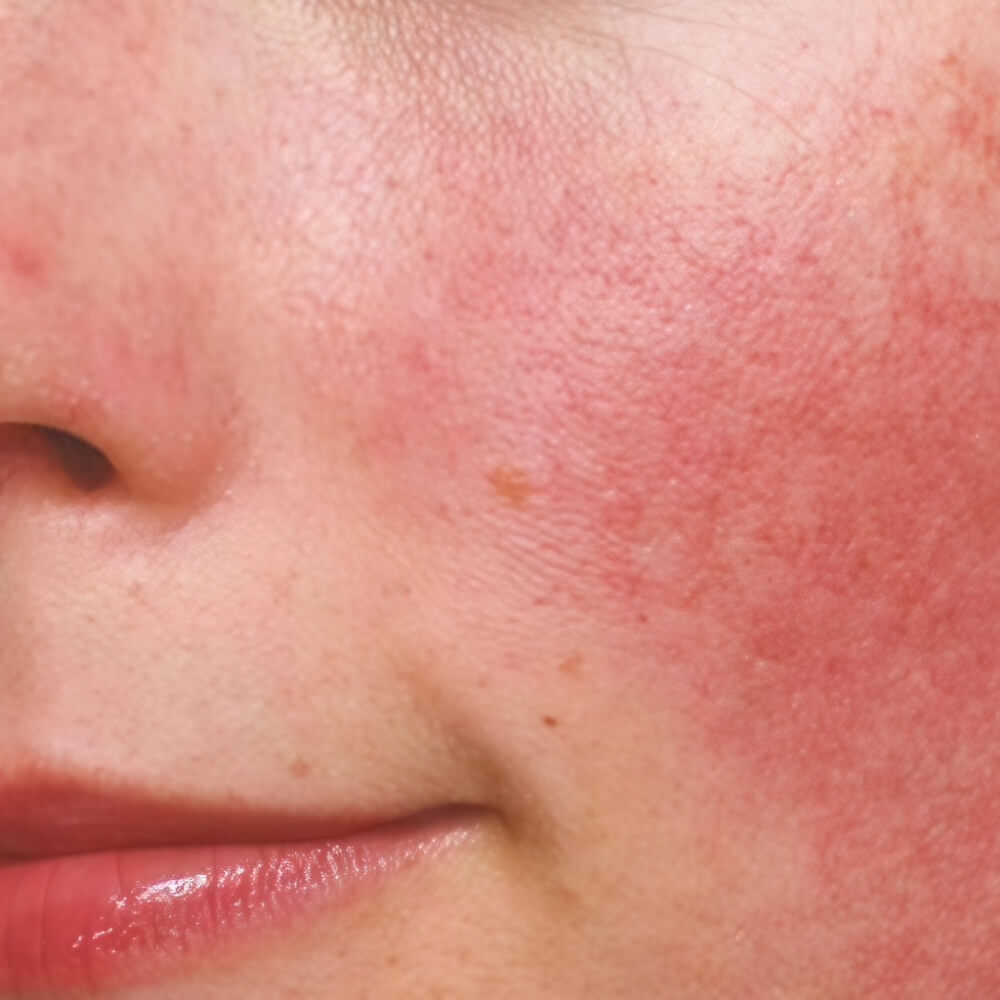Articles
What is sensitive skin?
Sensitive Skin refers to skin that is more reactive to stimuli than normal skin. This condition can result from both internal factors, such as hormones, genetics, skin diseases, and stress, as well as external factors, such as weather changes, air pollution, skincare products, and cosmetics.
When the skin becomes irritated, it can lead to inflammation. Common symptoms include redness, dryness, itching, burning, flaking, or even the formation of raised bumps or acne. Sensitive skin can affect individuals of all ages, including the elderly.
Treating sensitive skin or skin irritation for long-term relief can be difficult, as the underlying causes are often factors beyond control. Even when treatment is effective, it may only offer short-term relief.
Ultimately, when exposed to uncontrollable triggers, sensitive skin may return to its previous condition. To maintain lasting skin health, the following three key steps are important:
-
Protection: Since the condition cannot be completely cured and triggers cannot always be controlled, protective measures are essential to prevent flare-ups.
-
Short-term Care: This involves soothing the skin during redness, irritation, or inflammation to improve the condition quickly.
-
Long-term Care: Repair and restore the skin’s strength, reinforcing its protective barrier to prevent future sensitivity and reduce vulnerability to external factors that may harm the skin.
